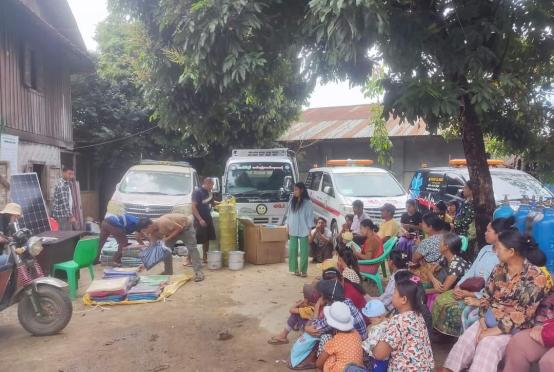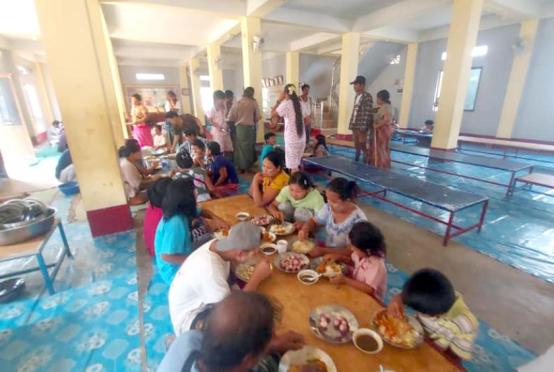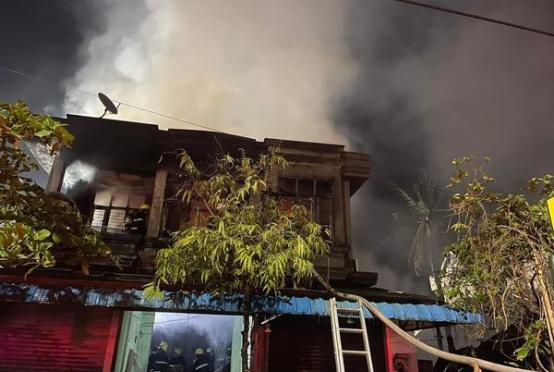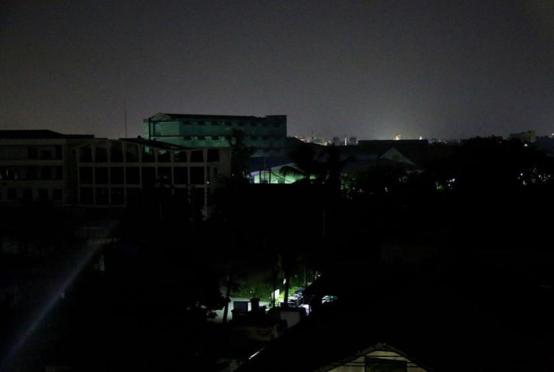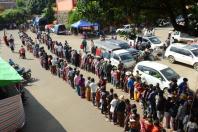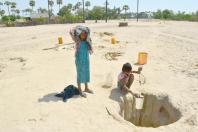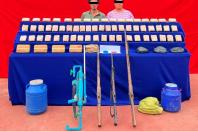KATHMANDU (The Kathmandu Post/ANN) - Deliveries of farm products shrink as floods wipe out crops, causing prices to jump.
Fresh vegetables are becoming scarcer in the Kathmandu Valley, causing prices to soar over the weekend, following monsoon-induced floods and landslides in major vegetable producing areas.
Vegetable traders said average wholesale prices had jumped 20 percent, and may continue to rise if supply did not improve immediately. A deluge in different parts of the Tarai plains, the country's largest vegetable producing region, wiped out crops, traders said.
In the hilly districts surrounding the Kathmandu Valley, landslides and incessant rain have hit vegetables in the fields. Traders said that damage to highways and bridges could also affect supplies for a few more days.
Officials at the Kalimati and Balkhu markets, two major vegetable and fruit bazaars in the valley, told the Post that deliveries of fresh vegetables had shrunk by more than half in the last two days.
Before the heavy rains and floods that began on Thursday, pesticide and quarantine issues with India had also obstructed deliveries, causing a big gap in demand and supply that led to massive price hikes in key cities like Kathmandu.
“Floods have swept away vegetables in major producing districts like Sarlahi, Rautahat and Chitwan. The impact of the reduced supply will be seen in Kathmandu in the form of soaring prices,” said Shyam Prasad Lamichhane, manager at the Balkhu Vegetable Market.
Manoj Dhital, senior marketing officer at the Kalimati Fruits and Vegetable Market Development Board, said 300 tonnes of vegetables arrived at the market on Saturday, down by 60 percent from the usual quantity.
On normal days, 800 tonnes of vegetables used to arrive daily in the Kalimati market alone, he said. Vegetable deliveries increased slightly to 500 tonnes on Sunday, he said.
The Balkhu vegetable market received around 300 tonnes of vegetables on Saturday, down from the usual 500 tonnes.
Dhital said that vegetable prices were normally high during this time of the year because farmers are busy transplanting paddy. During the rice planting season, the Kathmandu Valley's requirement of vegetables is fulfilled by surrounding districts like Nuwakot, Dhading and Kabhre.
“The Balkhu vegetable market used to receive almost 70 percent of the vegetables from different Tarai districts and 30 percent used to come from the adjoining districts,” said Lamichhane. He added that during the monsoon, 60 percent of the off-season vegetables come from India. Nepal is almost completely dependent on imported onions.
According to a statistic of Nepal Rastra Bank, the country imported vegetables worth Rs12.57 billion in the first 10 months (mid-July to mid-May) of the current fiscal year from neighbouring India, a jump of 34.6 percent year-on-year.
Publicity about pesticide issues and quarantine requirements for imported farm products have made Nepali consumers more careful when buying vegetables, added Lamichhane. Consumers are saying that they are ready to buy higher priced local vegetables rather than taking home imported products that may contain excessive pesticide residues, he said
Average retail prices of vegetables such as tomato big and small, cowpea, French bean local and hybrid, soybean green, bitter gourd, pointed gourd, smooth gourd, okra and eggplant have increased 10 to 40 percent over the week. On Sunday, sellers were charging Rs125 per kg for tomato big, a steep 19 percent hike. The price of bitter gourd increased by 13.3 percent to Rs85 per kg. Smooth gourd was priced at Rs40 per kg, a jump of 40 percent within a week.

